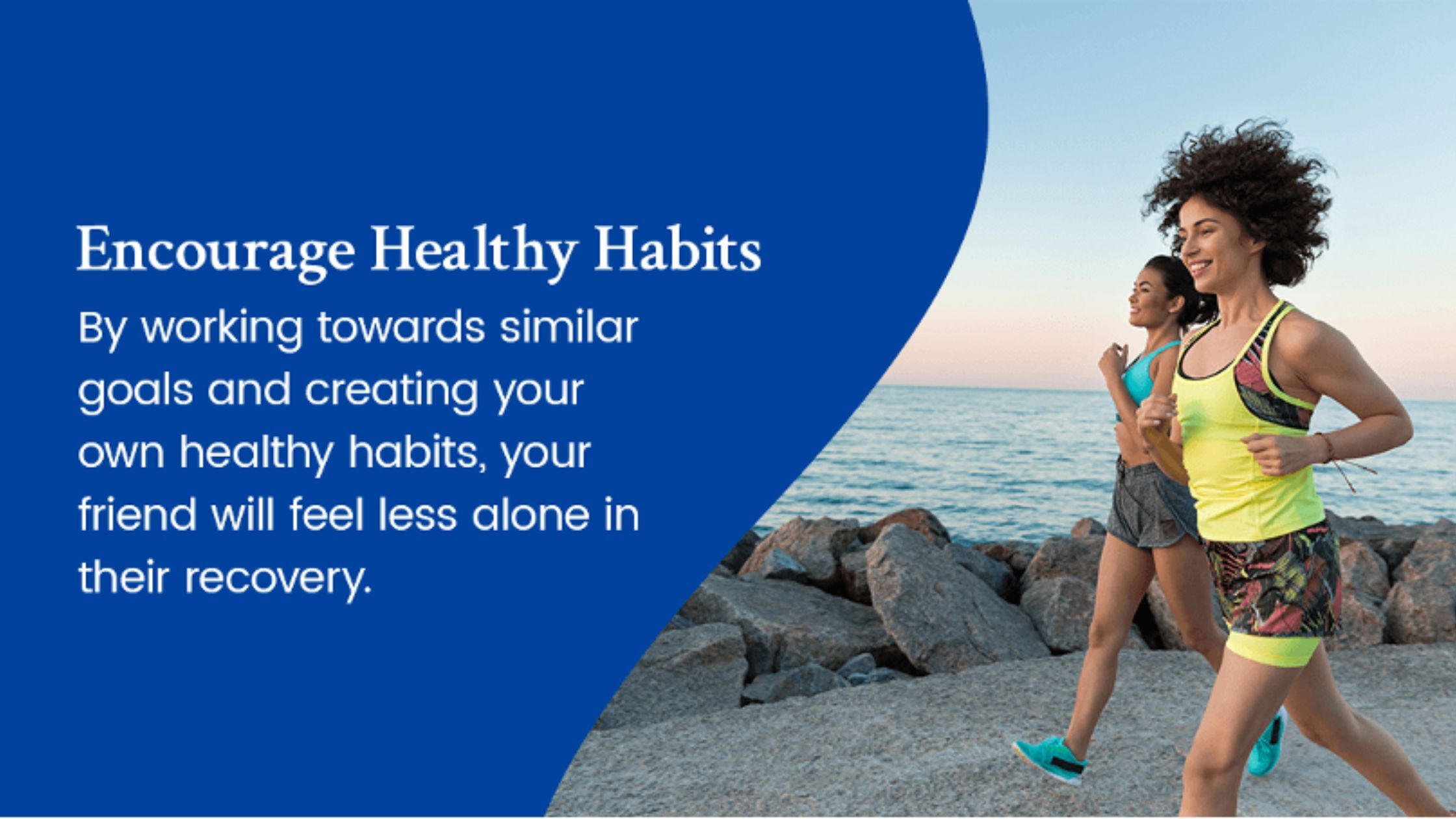Addiction is a chronic disease like high blood pressure and hypertension. Treating substance use disorders (SUD) requires tackling deep-seated behaviors to overcome the addiction. This is known as being in recovery.
There are many scientifically based methods of recovery that people with SUD can rely on to guide their recovery. However, they cannot do it alone. They will need the support of their treatment team, counselors, loved ones and friends. While you might have different ways of supporting them on their life’s journey, being friends with someone recovering from addiction is the same as being friends with someone who does not have SUD.
How to Support a Friend in Recovery
Recovery takes strength and determination. It is a lifelong battle for many people. When your friend or loved one is going through recovery, they will need support to help them with a successful recovery. There are numerous ways to support someone getting sober. Most of these methods mean simple changes to your life, but they can greatly impact your friend’s recovery.
Here are a few ways you can support someone’s sobriety:
Learn More About Addiction and Recovery
Understanding addiction and the process of recovery will better equip you to support your friend’s sobriety. Addiction is a disease. It is not a moral failing or the result of a lack of willpower. And recovery will be different for each person. Research more about options available for your friend’s specific substance use disorder and the impacts recovery will have on their life.
It is important to understand that lapses and relapses will happen. Up to 60% of patients will relapse during recovery, less than some chronic illnesses. This doesn’t mean their recovery has failed. Instead, these relapses can help highlight parts of the treatment plan that can be improved. Overall, relapses can help create a stronger treatment plan. Take time to understand possible signs of relapse — knowing if your friend is relapsing can help you address it as soon as possible.
Be There for Them
We all want people who are there for us. Having supportive friends is even more important for people in recovery. Take the time to check in on your friends regularly. Ask them questions about how you can support them and if they have any triggers. You may need to alter your behavior a little — for example, if it’s your tradition to hang out with friends at a bar, you might instead suggest a park so your friend in recovery feels more included.
Being friends with someone recovering from addiction doesn’t mean all your conversations need to be about their progress in recovery. Many people seek out normalcy, so they’ll want to talk about other topics, but if your friend does want to talk about their addiction or recovery, it is best to simply let them tell you how they feel and not try to solve their problems.
Promote Accountability With Healthy Communication
Develop healthy and open communication and establish boundaries with your friend in recovery. Talk about any issues in a clear and non-judgmental way, and avoid language that blames or stigmatizes them or their SUD. If you have a disagreement, give them space to think and respond.
If they hit a bump in their road to recovery, offer to take action alongside them rather than expressing your disappointment. Accountability is important for those in recovery from SUD and having a friend who’s open and non-judgemental will make it easier to be upfront about any problems they face.
Encourage Healthy Habits

Getting proper sleep, practicing open communication, exercising and eating healthy food are a few ways to show your support for your friends in recovery. You can also stay away from drugs, alcohol and nicotine to show solidarity with your friend. By working towards similar goals and creating your own healthy habits, your friend will feel less alone in their recovery.
Be aware that if a big part of your relationship with your friend is going out and drinking, this will change in recovery. Look for new ways to bond and have fun together. Search for sober activities you both enjoy or try out several activities you can do to bond.
Don’t Judge and Avoid Labels
There is still an unnecessary stigma around addiction and recovery. How we talk about people dealing with or recovering from addiction has a bigger impact than we think. One way to address this is to change how we speak about addiction. Avoid terms like junkies, drunks, addicts or abusers — instead, use terms like “person with substance use disorder” or “person struggling with addiction.” Doing so can make people reshape how they think about addiction.
Recovery can bring up feelings of shame, guilt and regret in people struggling with addiction. Being judged and using derogatory language can heighten these feelings, making recovery more challenging. Being non-judgmental shows your loved ones that you are supportive and accept them as they are.
Encourage Them
You can brighten anyone’s day by telling them they did a good job or that you are proud of them. Acknowledging the hard work they put into their recovery will show them you have noticed their efforts. A few words of encouragement can make a big difference. Giving your friends compliments on their accomplishments can boost their self-esteem, helping them accept that they deserve to be in recovery.
Take Care of Yourself
Set healthy boundaries with your friend and look after your mental health. Being too involved in your friend’s recovery can harm both of you. It can drain your energy, affect your mental health and may lead to co-dependency. Your friend might also think you don’t trust them to continue with their recovery if you shadow them too much.
Self-sufficiency is essential to everyone — more so to people in recovery. Sometimes you need to step back and let loved ones work through everything on their own. Taking care of yourself will also be an excellent example for friends to follow. Being happy and healthy empowers you to be more present for your friend when they do need you.
Sobriety Dos and Don’ts
Take note of the following dos when supporting someone in recovery:
- Do ask how you can support your friend during recovery.
- Do express how much you are enjoying the new sober hobbies or activities you are using to bond.
- Do provide and plan sober alternatives to your usual activities.
- Do listen to your friend and only offer advice if they ask.
- Do set clear boundaries and encourage open communication.
- Do be patient with your friend through bad days and relapses.
Avoid the following don’ts to help your friend through their recovery:
- Don’t ask uncomfortable questions about their addiction or recovery.
- Don’t complain about not being able to party, drink or go out with your friend.
- Don’t pressure your friend to break their sobriety.
- Don’t hover too much or question your friend’s choices.
- Don’t offer unsolicited advice.
- Don’t break your friend’s trust by sharing things they’ve confided with you.
Learn More About Supporting Your Loved One
Recovery is a lifelong battle. It takes determination, grit and lots of strength. If your loved ones struggle with substance use, they will need as much support as possible. DreamLife Recovery has several resources you can use to learn more about how you can help your loved ones with their addiction and recovery.







